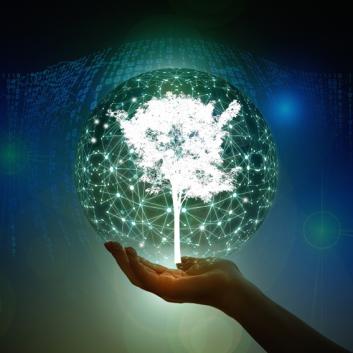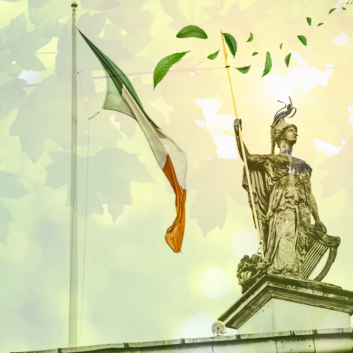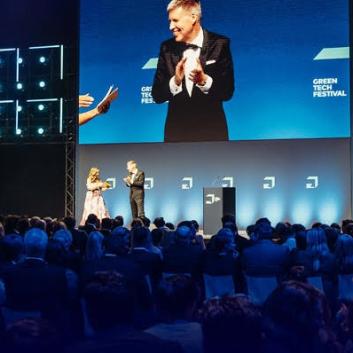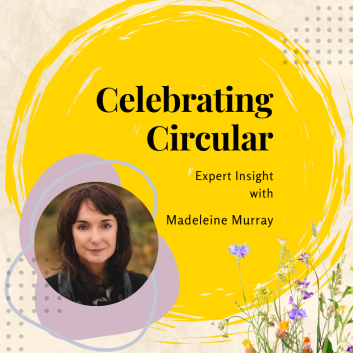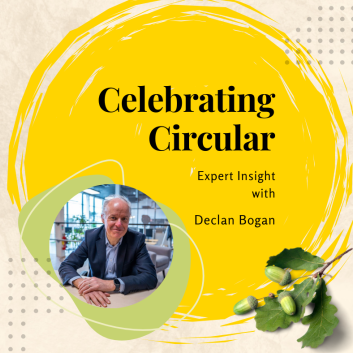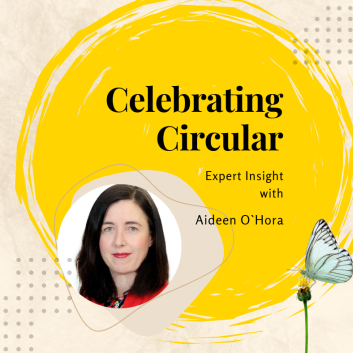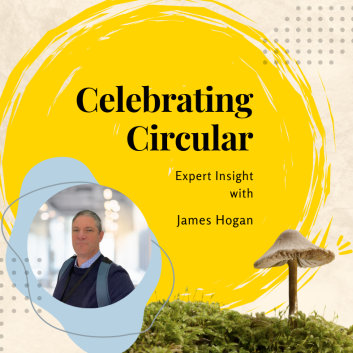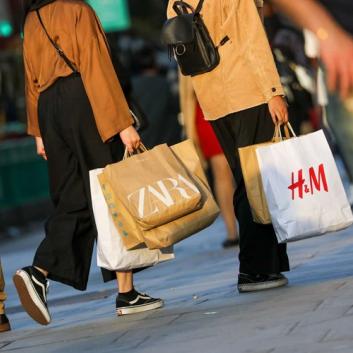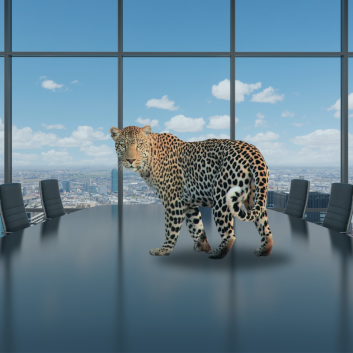Circular Economy is on the rise with millions in funding available
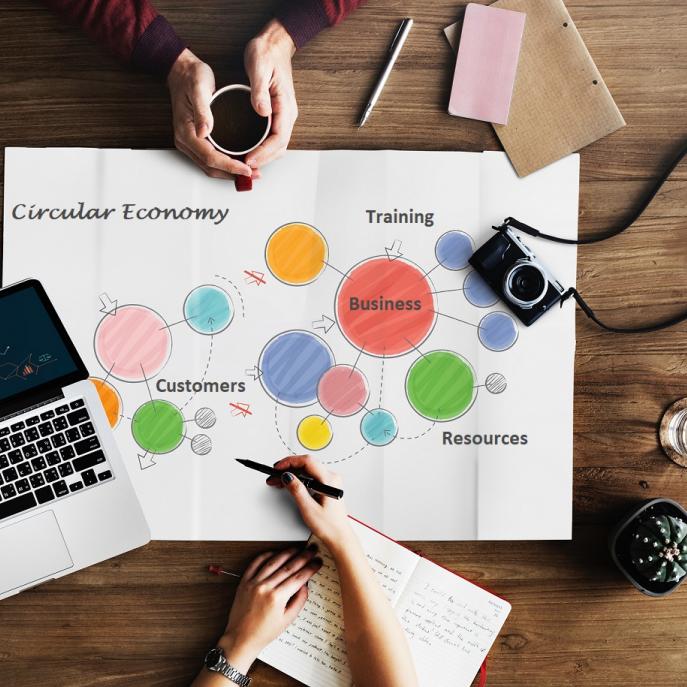
We are experiencing a paradigm shift in the economy towards the transition to a Circular Economy and it is important that business leaders act now in order to make their company future-ready. Businesses that do not embed sustainability within their business model will be out of business in the long run.
Overview from Dr Joanne Rourke, Environmental Scientist with over 20 years experience of environmental work. Dr Rourke is the Resource Efficiency Officer in the Eastern-Midlands Waste Regional Office, based in Dublin City Council.
Circularity in a nutshell
Circular Economy offers us a way to continue a good standard of living without continuing to wreak the planet, so this is a way of protecting both the environment and the economy.
It is a strategy designed to keep resources such as materials, energy, water etc. in play for as long as possible and to extract the maximum value from the resources we use so that natural resources are protected and regenerated.
The focus is on reuse, repair, regeneration and then on recycling.
In a Circular Economy, the use of virgin materials is reduced and less waste is produced, however, it is not a new concept at all, we’ve been here before with this idea, but the timing is important.
It’s practically an alternative production system to our current wasteful linear model of take – make – use – discard, where we take resources, make stuff, use this stuff and then throw it away.

This is the way in which most businesses are operating at the moment and it is becoming less tenable as so much value is lost from the system and it is detrimental to the environment.
A Critical point for both the planet and for business
Consumers
The various environmental crises we are seeing such as climate change, the plastic tide, biodiversity collapsing is causing real and present concern for the public and so consumers want more ethical and eco-friendly products and services.
Research on consumer trends in Ireland, the EU and the USA all points to consumers becoming not just more aware of environmental issues but also becoming more willing to make ethical purchasing decisions. Consumers are now demanding quality goods and services that have been produced as efficiently as possible and they are ready to pay more for them.
Supply chain
At the same time, mineral resources such as precious and heavy metals are becoming scarce and natural capital is diminishing. For businesses, this means more expensive raw materials and less security of supply. Large corporate supply chains, as well as financial institutions, are no longer willing to work with or invest in businesses that are not complying with higher environmental standards.
Employees
Likewise, jobs market trends suggest that the Millennial generation, so those of about 22 to 37 years, want to work for companies that reflect their values and that are doing the ‘right thing’. So companies who want to attract and retain that talent will need to transition towards values-driven business models.
Regulations
There is also an important policy and legislative context to consider here. The EU Circular Economy Package was passed into legislation and it lays down ambitious recycling targets for a range of materials. It requires products to be designed without hazardous materials, if at all possible, and in such a way that they can be easily repaired and easily taken apart to be reused or recycled.
This is a law now, so companies need to move towards Circular Economy models to ensure compliance.
"The times ahead will be challenging for enterprises that follow the 'take-make-waste' traditional approach. They are more exposed to the risks associated with future resource shortages and price fluctuations, supply continuity, new market dynamics and tighter environmental laws," says Michela Ferrando, project coordinator at the Economic Development Department, Dublin City.
Adopting Circular Economy
These trends will push companies to innovate new products and services with significantly less negative environmental impacts. Implementing the concept of Circular Economy, in turn, will help companies to differentiate themselves and build new markets with the new ‘woke’ generation.
All of this helps the bottom line and is likely to result in better returns for investors as well.
Upcoming trends
- A focus on textiles, particularly fast fashion, as a waste stream; it’s such a polluting and wasteful industry.
- Increasingly aware consumers – remember the school strikes are being led by today’s teenagers and they will be working and shopping from the next decade onwards.
- Prioritisation of environmental issues at policy level both in Ireland and the EU, which will have an impact on how much is expected of business.
- Sharing platforms for items such as cars, clothes, tools etc., are going to become even more popular as a business model.
Steps to be taken
The first step is building knowledge about Circular Economy among small enterprises. Corporates are aware and are planning for Circular Economy whereas the awareness is still low among SMEs.
Items to help businesses would include training materials for their staff on the basic concepts of Circular Economy, as well as even more basic materials, such as signage and systems to help improve segregation of waste and recycling.
Eco-design is of vital importance in the Circular Economy and everything flows from design – so templates and exercises for planning and designing in a more eco-oriented mindset would be great to have here.
It’s important to get these foundational things right first.
This journey might be quite overwhelming and take some time to process. The best approach is to start step-by-step by looking at areas of your business where things can be improved or done differently.
€318 mln EUR is waiting for projects in the field of climate action, environment, resource efficiency and raw materials. You can submit your proposals by 13 February 2020 - more information: European Commission website
Future-proofing small enterprises in Ireland
In collaboration with some key stakeholders, Dublin City Council recently delivered the MODOS training programme which was a 6-week Circular Economy primer for SMEs. It combined a wide range of expertise from business, environment, design thinking, marketing and communication to help SMEs learn about the concept of Circular Economy and begin to transition their businesses.
The MODOS training is an entrepreneurship programme that encourages the development of innovative and sustainable business. The name comes from the Latin expression modus operandi, meaning the way something operates or works, a method of procedure. The blue colours of the logo were inspired by the journey of Ellen McArthur who sailed solo around the globe and realised that within her boat she could manage a closed system of waste and resources.
The course is designed for micro, small and medium enterprises to improve their environmental performance and explore new business opportunities at the same time. It provides the tools and knowledge to make this transition happen in the business community.
The training also offers an opportunity for creating competitive advantage, spot new market opportunities, build better customer relationships, and peer-to-peer networking. It also includes the introduction of fundings available for businesses who undertake sustainable and circular projects and the support offered by the Local Enterprise Office in Dublin.
The power of peer-to-peer networking element was one of the biggest added value of the course. Meeting at the MODOS training inspired three of the participant companies to start working together on the development of a new innovative circular product for the event management space.
Participants of the first MODOS training were in fact quite diverse, including businesses from the catering industry to fashion, event planning, design, cosmetics and manufacturing. For example, Native Events is a leader in sustainable event solutions in Ireland, while Viva Green have been pioneers in creating innovative sustainable products over the 25 years.
After the first rollout of the programme, the “MODOS Phase II” training is coming soon. The goal is once again to facilitate the transition towards circularity by providing the sectoral knowledge and practical resources.







